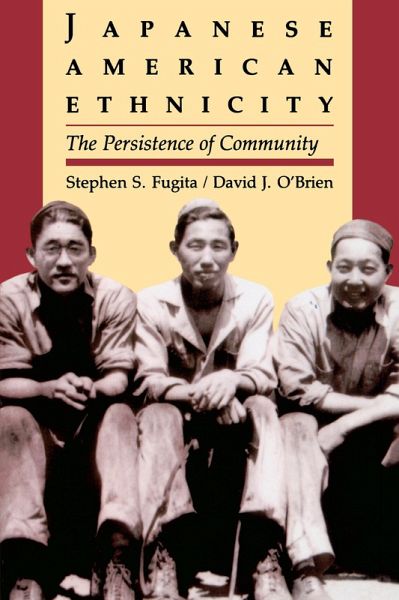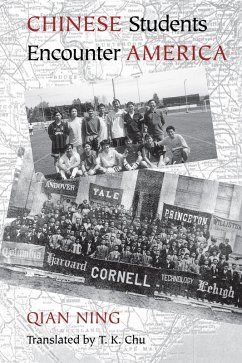
Japanese American Ethnicity (eBook, PDF)
The Persistence of Community

PAYBACK Punkte
11 °P sammeln!
Why do some groups retain their ethnicity as they become assimilated into mainstream American life while others do not? This study employs both historical sources and contemporary survey data to explain the seeming paradox of why Japanese Americans have maintained high levels of ethnic community involvement while becoming structurally assimilated. Most traditional approaches to the study of ethnicity in the United States are based on the European immigrant experience and conclude that a zero-sum relationship exists between assimilation and retention of ethnicity: community solidarity weakens a...
Why do some groups retain their ethnicity as they become assimilated into mainstream American life while others do not? This study employs both historical sources and contemporary survey data to explain the seeming paradox of why Japanese Americans have maintained high levels of ethnic community involvement while becoming structurally assimilated. Most traditional approaches to the study of ethnicity in the United States are based on the European immigrant experience and conclude that a zero-sum relationship exists between assimilation and retention of ethnicity: community solidarity weakens as structural assimilation grows stronger. Japanese Americans, however, like American Jews, do not fit this pattern.
The basic thesis of this book is that the maintenance of ethnic community solidarity, the process of assimilation, and the reactions of an ethnic group to outside forces must be understood in light of the internal social organization of the ethnic group, which can be traced to core cultural orientations that predate immigration. Though frequently excluded from mainstream economic opportunities, Japanese Americans were able to form quasi-kin relationships of trust, upon which enduring group economic relations could be based. The resultant ethnic economy and petit bourgeois family experience fostered the values of hard work, deferred gratification, and other perspectives conductive to success in mainstream society.
This book will be of interest to sociologist and psychologist studying ethnicity, community organization, and intergenerational change; and to anyone interested in the Japanese American experience from an economic or political perspective, Asian American studies, or social history of the United States.
The basic thesis of this book is that the maintenance of ethnic community solidarity, the process of assimilation, and the reactions of an ethnic group to outside forces must be understood in light of the internal social organization of the ethnic group, which can be traced to core cultural orientations that predate immigration. Though frequently excluded from mainstream economic opportunities, Japanese Americans were able to form quasi-kin relationships of trust, upon which enduring group economic relations could be based. The resultant ethnic economy and petit bourgeois family experience fostered the values of hard work, deferred gratification, and other perspectives conductive to success in mainstream society.
This book will be of interest to sociologist and psychologist studying ethnicity, community organization, and intergenerational change; and to anyone interested in the Japanese American experience from an economic or political perspective, Asian American studies, or social history of the United States.
Dieser Download kann aus rechtlichen Gründen nur mit Rechnungsadresse in A, D ausgeliefert werden.













